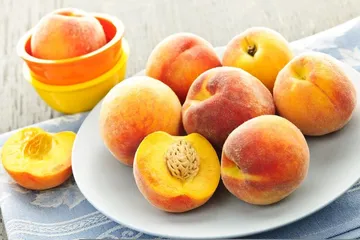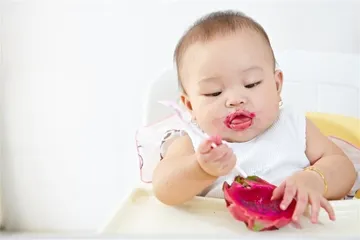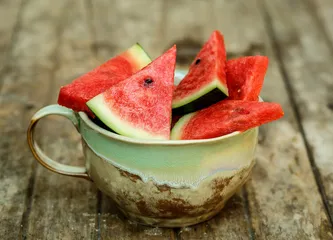A big inventory of high-calorie fruits: Some have higher calories than rice, but many people use it to lose weight
"Awen, why don't you eat lunch again?" My colleague had just come back from takeout and saw A Wen holding a bowl of grapes.
"I don't want to eat and lose weight."
"It's useless," another colleague came over and said,"If you eat these fruits, you will be fatter than rice!"
"Impossible? These grapes are sour and sweet. Will they gain weight after eating them?"
Many people who love beauty like to use fruits instead of staple foods to help transition through the weight loss period. But did you know that although some fruits are not sweet to taste, they contain extremely high sugar. Once you eat these high-sugar fruits, not only will you not lose weight, but you will even accumulate fat, making your body fatter and fatter.

Today, let Xiao Jiu tell everyone that in those years, the fruit you misunderstood was "sweet."
1. You really can't taste the sugar content of fruits. Do you think watermelon is sweet? Peach sweet? The first reaction of many people is naturally "watermelon". Watermelon is rich in fructose, while peaches mainly contain sucrose.
It turns out that the sugars contained in fruits are mainly glucose, fructose, sucrose and starch, and according to the sweetness ranking, the order is fructose> sucrose (sweeter after freezing)> glucose> starch (no sweetness). So this is why watermelons are sweeter and peaches are more fragrant.
The sweetness of a fruit is not simply related to the sugar content, but also related to the type of sugar. Therefore, the sweetness of a fruit does not represent the sugar content. If it is not sweet, it is not high in sugar content.

2. Don't fall into the "trap" of fruits. In addition to the content and type of "sugar" that will affect the sweetness, certain ingredients in fruits, such as citric acid in lemons, organic acids in apples, etc., will make the sugar less prominent when eaten. But these fruits don't taste sweet, but they don't have a lot of sugar at all.
Dragon fruit is not sweet, but it has a lot of "sugar", as high as 13.3g/100g; Ginseng fruit tastes "plain", but contains 18g/100g of "sugar"; Passion fruit tastes It makes people feel "sour" to the point of losing their teeth, but it has more "sugar" than grapes, which is about 13g/100g; If you love to eat ice sugar gourd, you must know that hawthorn is not wrapped in syrup and is not sweet at all, but the hawthorn itself contains as much sugar as 22g/100g.

In addition to the above-mentioned fruits that are good at using certain ingredients to cover up their "sweetness", there are also some fruits that are not only sweet, but also quite high in calories. For these fruits, be careful to fall into the trap of taste.
A banana contains 12.23g of sugar and 93 calories, which is equivalent to half a bowl of rice; 10 pieces of jackfruit have a sugar content of about 19g and a calories of 105 calories, which is equivalent to a bowl of rice; Although the fresh dates are small, the amount of 8 pieces is 125 calories, which is almost equivalent to eating a bowl of rice; there is also the favorite "durian" of friends with "similar tastes", which contains 23.3g of sugar, and the calories of two pieces of durian are 150 calories, which is equivalent to more than a bowl of rice.

For people who lose weight, it is necessary to choose low-calorie fruits as a dietary supplement. The following fruits are very sweet, but they actually do not contain high sugar.
High-quality grapefruit tastes sweet and hydrated, but the sugar content is only 6.98g, which is equivalent to less than half of passion fruit. The calories per 100g are only 42 calories, which is equivalent to half a bowl of rice. However, it should be noted that the effect of grapefruit on promoting the absorption of antihypertensive drugs must not be taken together with antihypertensive drugs, which may easily lead to low blood pressure; loquat in early summer can quench thirst and juicy, and also has the effect of promoting saliva and moisturizing. It contains 8.5g of sugar and has only 41 calories/100g; in June and July, plums and mangoes are on the market. Both fruits have sugar levels below 8g, and the calories are not high, about 36 calories. They are both good summer fruits.
In summer, watermelons and cantaloupes are indispensable. They are sweet and juicy and can quench their thirst. The most important thing is that their sugar content is only about 7g and the calories are less than 32 calories.

3. Eat fruit in summer, keep in mind three things. This year's fruit harvest is particularly good. Litchi, plums, yellow peel, watermelons... are on the market in turn. Xiaojiu, who is in Guangdong, a major fruit province, is surrounded by sweet fruits. I can no longer be satisfied. But when you eat fruit in summer, you can't overeat it.
Fruit attributes: From the perspective of traditional Chinese medicine nutrition, fruits are divided into cold and hot. If your body is not suitable for eating cold or hot fruits, if you eat them improperly or eat too much, it will have serious negative effects on your body.
Watermelon is a cold food. People with a cold constitution should not eat more. Normal people who eat too much can easily cause diarrhea. "One litchi has three fires". Litchi is a warm food. Eating more will lead to fire, which may easily cause constipation and dreams.
网站图片位

Eating before meals can help you lose weight: After eating, food takes 1 to 2 hours to be absorbed by the digestive system. If you eat a lot of fruits immediately after a meal, it may cause gastrointestinal problems such as abdominal distension. Eating before meals can increase the feeling of satiety, and eating at dinner will naturally reduce the amount of food you eat.
Fruit consumption should be quantified: According to the dietary guidelines, adults should consume 200 to 350 grams of fruit per day, which is about one apple. Eating too much will lead to repeated intake of sugar, which will lead to weight gain.
Although fruit is rich in nutrients, it cannot replace the nutrients brought to the human body by staple foods, vegetables, coarse grains, etc., so weight loss cannot be supplemented solely by fruits. In addition, no matter whether fruits have high or low sugar content, they still contain fructose, so be sure to moderate and control the amount! Control the amount! Control the amount!
References: [1]"These fruits are not sweet to taste but they are extremely fat! The truth about fruit sugar is...》. Healthy Zhejiang. 2018 -05-06 [2]"A picture tells you the truth about the sugar content in fruits". Endocrinology Time. 2020 -06-17 [3]"When eating fruits in summer, you must distinguish your physique and keep in mind the 8 major taboos". People's Daily Online. 2012 -05-14 Reprinting is prohibited without the author's permission and authorization